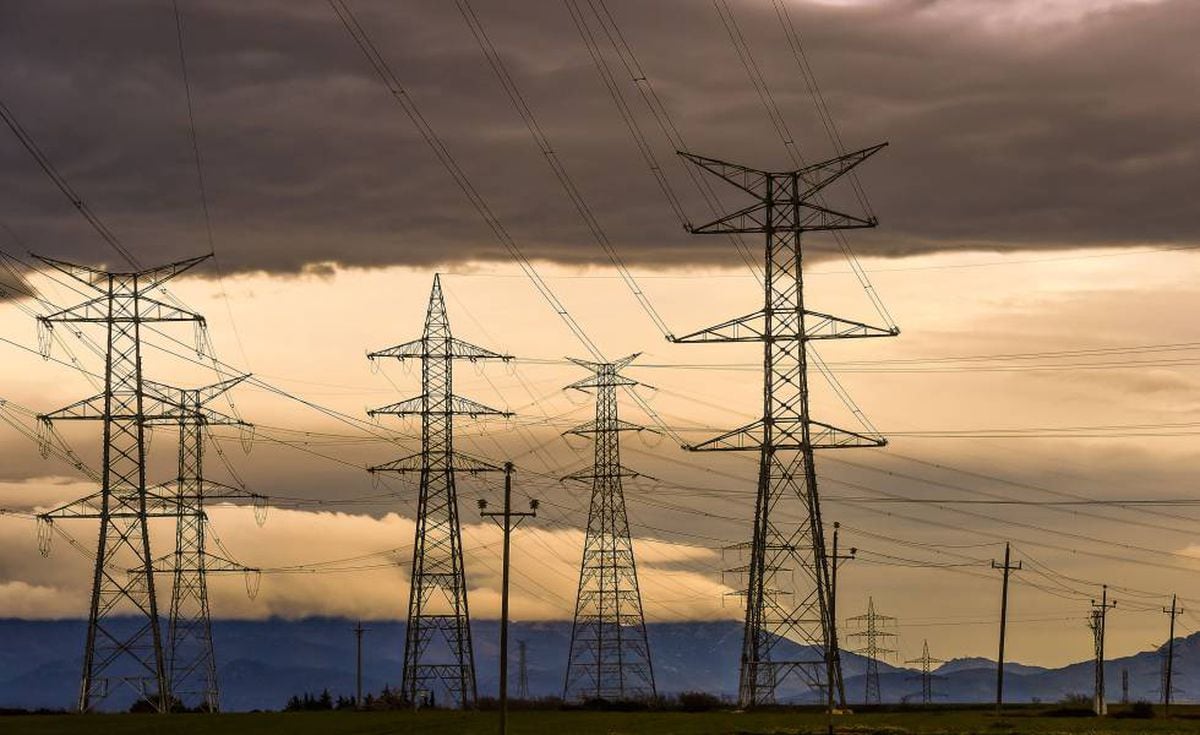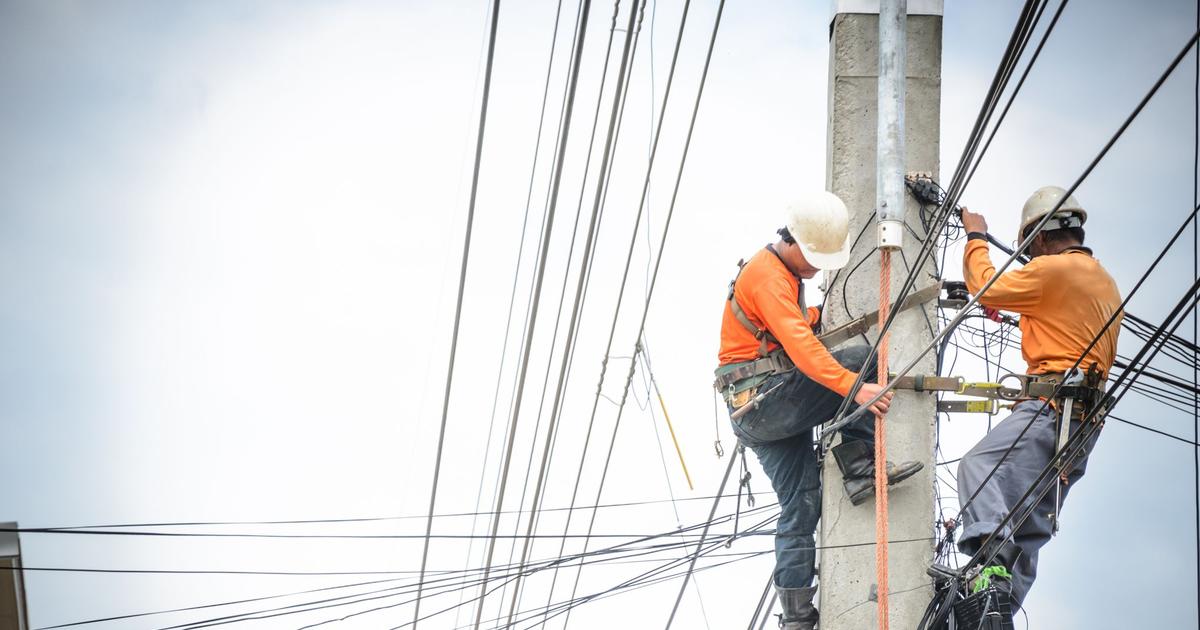Electricity transmission towers near Figueres, in Catalonia, which are part of the interconnection network with France.
EFE
Brussels is ready to play hard to push for the construction of power lines or hydro pipelines across Europe: “The Commission will also explore further avenues, including possible legislative action, to ensure that Member States develop the necessary cross-border energy infrastructure, so that no there are delays in the deployment of this strategic infrastructure”.
The phrase can be read in the plan to promote green industry and not lose competitiveness that the European Executive has presented this month.
The objective is to overcome the resistance found in some countries to deploy continental energy infrastructures, something that weighs down the single market in this chapter.
From Spain this is very easily understood: the usual obstacles that France usually puts up every time interconnections are considered have the consequence that the Iberian Peninsula continues to be an energy island.
This statement translates into numbers.
In 2020, the electricity networks between Spain and France should have an interconnection capacity of 10%;
ten years later it should reach 15%.
In 2022, it barely reached 3% and the new power lines that are being deployed in the Bay of Biscay are behind schedule.
This situation was key last spring so that, given the skyrocketing price of electricity and gas, the EU gave the go-ahead to the Iberian exception when setting electricity prices in Spain and Portugal.
What paths does the Commission consider?
The explanation given by the official sources of these words is that the text sets out the objective of accelerating the development of these infrastructures between countries with the regulations that already exist: "There are possibilities thanks to the guidelines of the TEN-E regulation, and it is about See if there are other options as well.
In other words, the Executive of Ursula von der Leyen is willing to explore new regulations or new mechanisms that allow this objective to be achieved, which have revitalized the need to reduce dependence on Russian fuels as much as possible and the impact of the invasion of Ukraine, a A blow that could have been less if more infrastructures of this type were deployed.
Other sources point out that Brussels with these words would be sending a political signal, since it is not clear that it has the legal capacity to force States to accept infrastructures that they do not want.
This is how they see it in the Government of Spain, which interprets it as a sign of support for the traditional Spanish position of demanding the development of energy networks that connect the Peninsula with the rest of the continent.
In Madrid, they also do not believe that the Commission can force the deployment of a power line or a tube simply by drafting a regulation, but they do think that it can give it a strong boost by recognizing it as something necessary.
In the same way, Nicolás González Casares, a Spanish MEP from the social democratic group focused on energy issues, reads it.
“The Commission can generate the framework and the scenario that favors the installation of these infrastructures”, he explains.
An example of this is found again in the Iberian Peninsula.
Last year Germany, Portugal and Spain put on the table the need to build a gas pipeline to the center of Europe.
That facility would have to have the capacity to transport green hydrogen when technology allowed if it wanted to have community funding.
The option of recovering the abandoned, unfinished gas connection that crosses the border through the Catalan Pyrenees was seriously considered, something to which France has always been reluctant.
To get around the obstacle, Brussels pointed out in May in the presentation of the RepowerEU plan the need to build a gas pipeline between Barcelona and Livorno.
In the end, Paris gave in and joined the project to build a tube that carries hydrogen between the Catalan capital and Marseille,
The current EU regulation to promote this type of infrastructure is based on a 2013 regulation. This sets the criteria for designating an infrastructure as a "project of common interest" and also whether or not community funding is granted.
To achieve this, a call is opened every two years to which public and/or private initiative projects can be submitted.
The last one opened last October and closed in December.
Now, the process is in a consultation period that will last until next March.
This entire path is regulated by this regulation from 10 years ago, modified in June, which updates the 11 priority corridors for these infrastructures.
Two of them are of capital importance for Madrid and Lisbon.
One points to "a north-south axis of Western Europe" with "interconnections between Member States of the region and with the Mediterranean area, including the Iberian Peninsula, in particular to integrate electricity obtained from renewable energy sources."
The other is the “hydrogen in Western Europe” connection.
Follow all the information on
Economy
and
Business
on
and
, or in our
weekly newsletter
Subscribe to continue reading
Read without limits
Keep reading
I'm already a subscriber









